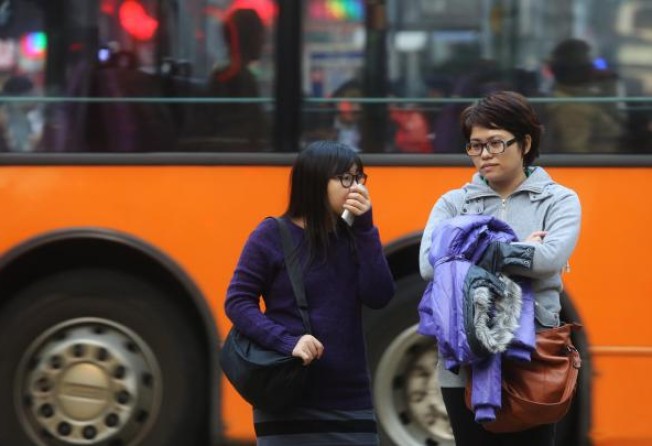Please, delay no more in clearing the air

Chief Executive C.Y. Leung is expected to announce measures today to start the process of improving the quality of Hong Kong's noxious air, at least at the roadside. Much of the pollution in the atmosphere comes from the mainland, and that is a more complicated matter to resolve. But at the roadside in urban centres, the pollution is home-grown and can be managed. To its considerable credit, the government brought in Christine Loh Kung-wai, who knows this subject inside out, having written extensively about it during her tenure at the think tank she founded, Civic Exchange. The hope has always been that she wouldn't have joined without getting some assurances from Leung that she would be able to get on with the job of clearing the air. So the weight of expectations on her is considerable. It will be disappointing if this afternoon we hear that the government needs more time to consider how to deal with this situation. People will be looking for proposals to get old diesel-engined vehicles off the road within a short time. Looking further ahead, it would be good to see plans for lowering the level of traffic in urban areas and thus reducing the "canyon effect" whereby toxic emissions are trapped by the city's tall buildings. To its everlasting shame, Donald Tsang Yam-kuen's government and Edward Yau Tang-wah, the then secretary for the environment, did little to address the problem and pretended it did not exist or that there was nothing they could do about it. There is considerable low-hanging fruit here for the government to score easy political points. It is worth reflecting that according to the Hedley Environmental Index, there were an average of 3,200 avoidable deaths a year over the past five years as a result of Hong Kong's pollution. This is way more than the number of people that died from Sars, bird flu, swine flu and a lot more besides. If we were told that there would be 3,200 deaths from bird flu this year, then there would be panic. But for some reason, there is relatively little concern at the prospect of 3,200 deaths as a result of air pollution, which will happen. In addition to the deaths, there is the damage that is being done to respiratory systems, particularly those of children, which can be permanent. The Hedley index is peer-reviewed and its figures are not disputed. In addition, it calculates that the economic cost to Hong Kong last year due to pollution, which arose from the cost of dealing with pollution-related diseases and lost productivity, was about HK$40 billion. Yesterday evening, the average hourly concentration level of the 2.5 particulate matter was 53 micrograms per cubic metre in Central, 62 in Causeway Bay and 44 in Mong Kok. These levels were considerably higher than 25, which the World Health Organisation considers safe. The government has a duty of care to the community to act on this in a meaningful way.
JPMorgan has a whale of a time
Despite its whopping US$6 billion "London Whale" misadventure, JPMorgan had by far the most profitable capital markets business among the big banks last year. According to Financial News, research from consultancy firm Tricumen shows that the bank had pre-tax profits of more than US$6 billion, which was more than 20 per cent higher than its closest rival, Citi. Barclays, Bank of America-Merrill Lynch and Goldman Sachs were the third, fourth and fifth most profitable of the 12 global investment banks Tricumen researched. JPMorgan was particularly strong in debt capital markets, and was the second-most profitable in secondary capital markets with strength in equity derivatives, and fixed income, currencies and commodities.
Brokers' begging contest
Absolutely our last word on the Ferraris-and-steamed-bun matter that has been exercising some research analysts this week with respect to the Institutional Investor poll. This, we are told, is the thing that sell-side analysts are the most focused on at present aside from their bonuses. It was described to us as a "begging contest". There have been complaints that this has become rather lopsided in recent years after mainland funds were allowed to vote, even though they rarely pay for non-A-share research. This, people say, has tended to work in favour of mainland analysts who, armed with their votes, then demand commensurate bonuses.
Have you got any stories that Lai See should know about? E-mail them to [email protected]